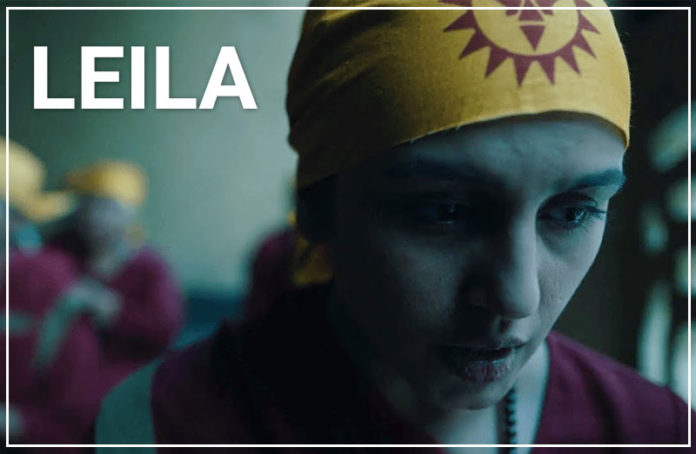LEILA
Set in the near future, where the diseases have escalated, community boundaries heightened and the orders of a semi-divine figure prevail, Netflix’s LEILA is a nerve-racking thriller, a tale about longing, faith and most of all loss. In a world of sickening chaos, Shalini is set to find her daughter Leila from whom she separated 2 years ago.
Adopted from the dystopian fiction novel, Leila showcases the society where when Humans are given power as equal to god creates havoc and destruction condemning the ones who violate their rules. Shalini (Huma Qureshi) one such transgressor who after marrying Rizwan (Rahul Khanna) a Muslim is sent to the camp to learn the new ways of this world.
Set in a city named ARYAVARTA which has strict rules related to caste and purity and even strict punishments for violating them, Shalini after marrying a Muslim is automatically considered impure and is transferred to the labor camp where the chase between Bhanu (Siddharth) and Shalini turns into a total rat race. Camp includes school treatment for violators’ that require school treatment for even the grownups, giving them uniforms and educating them on how intermixing of communities is illegal.
Adapted from Prayaag Akbar’s debut novel Leila which is also about Shalini, once wealthy but now pushed to the margins who lost her daughter 16 years ago is set out on the mission to find her daughter in forgotten spaces between heaps of garbage and disease. With law and order, the runs on the basis of purity and impurity on an individual redefine the meaning of crime and their punishments.
Netflix’s Leila is a series that tells about the situation when the extreme ideologies of religion come into play and its aftereffect on its people. Showcasing the society’s outcast which is subjected to humiliation for disobeying the country’s rules can be seen in a few scenes which include a violator who is forced to marry a dog and Shalini rolling over food, chanting “JAI ARYAVARTA”.
The series is also a critique of the elevated pollution state and diseases on an ever-increasing rate as it is set in the late 2040s, makes its audience aware of how the current situation of pollution can lead to mayhem in the future.
The series holds a mirror to the contemporary ways and a warning that a similar kind of authority might await our future, portraying the inequalities of the society, total surveillance, increase in diseases and pollution, social hierarchy and the toils subjected to women.






















